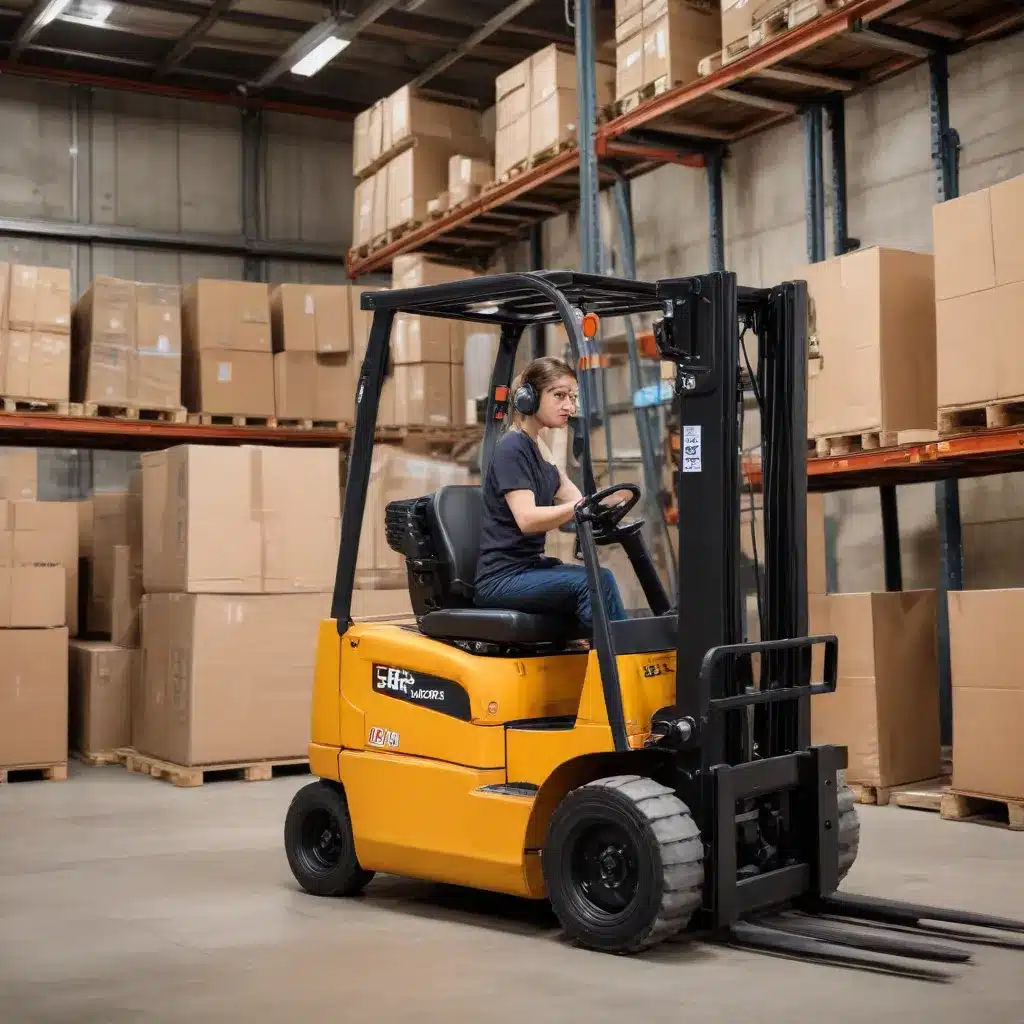
The Importance of Forklift Operator Training and Certification
In today’s fast-paced industrial landscape, the efficient and safe operation of forklifts is crucial for maintaining smooth workflows, minimizing downtime, and ensuring the well-being of employees. Forklift operators play a vital role in the success of warehousing, logistics, and manufacturing operations, handling heavy loads, navigating tight spaces, and ensuring the accuracy of inventory records. However, the operation of these powerful machines requires specialized skills and knowledge to prevent costly accidents and injuries.
The Occupational Safety and Health Administration (OSHA) recognizes the inherent risks associated with forklift operation and has established comprehensive training and certification requirements to safeguard workers and promote a culture of safety. Compliance with these standards is not only a legal obligation but also a strategic investment in the long-term success and sustainability of any business that relies on forklift operations.
OSHA’s Forklift Operator Training Requirements
OSHA’s regulations, as outlined in the 1910.178 standard, mandate a multi-faceted approach to forklift operator training, ensuring that operators are thoroughly prepared to handle these machines safely and effectively.
Formal Instruction
The training program must cover a range of topics, including:
– Operating instructions and warnings for the specific forklift models used
– Differences between forklifts and automobiles
– Controls, instrumentation, engine operation, steering, visibility, and capacity
– Fork and attachment use, vehicle inspection, maintenance, and refueling procedures
– Operating limitations and environmental conditions
Practical Training
In addition to the formal, classroom-style instruction, operators must also undergo hands-on, practical training. This includes:
– Demonstration of safe forklift operation
– Supervised operation of the forklift in the actual work environment
– Evaluation of the operator’s performance and ability to handle the equipment safely
Certification and Evaluation
Upon completion of the training program, employers are responsible for certifying that each forklift operator has been adequately trained and evaluated. This certification must be documented and maintained, with operators being re-evaluated at least every three years, or more frequently if necessary, based on factors such as observed unsafe operation or involvement in an accident.
It’s important to note that OSHA does not provide or approve specific forklift operator training programs. Instead, the responsibility lies with the employer to ensure that their training program meets the rigorous standards set forth by the agency.
Blended Learning: The Optimal Approach to Forklift Operator Certification
While online training can play a valuable role in the theoretical instruction component of forklift operator training, it alone cannot fulfill the comprehensive certification requirements set forth by OSHA. The agency’s standards mandate a combination of formal, classroom-style learning and hands-on, practical training and evaluation.
By adopting a blended learning approach, employers can leverage the convenience and cost-effectiveness of online training platforms to cover the foundational, theoretical aspects of forklift operation. This allows operators to grasp the core concepts at their own pace, freeing up valuable in-person training time for the practical, hands-on components.
The practical training and final evaluation must be conducted by a qualified individual, either from within the organization or an external training provider, who can directly observe the operator’s performance and assess their compliance with safety protocols. This on-site, experiential learning is essential for ensuring that operators are fully equipped to handle forklifts safely and efficiently within their specific work environments.
The Benefits of a Skilled and Compliant Forklift Operator Workforce
Investing in comprehensive forklift operator training and certification programs offers numerous benefits for businesses, including:
-
Enhanced Workplace Safety: Proper training and certification help to minimize the risk of accidents, reducing the potential for injuries, property damage, and costly downtime.
-
Improved Operational Efficiency: Skilled forklift operators can handle materials more quickly and accurately, optimizing workflow and inventory management.
-
Regulatory Compliance: Adherence to OSHA’s training and certification requirements not only protects employees but also helps businesses avoid costly fines and legal penalties.
-
Increased Employee Morale and Retention: Demonstrating a commitment to safety and professional development through rigorous training programs can boost employee engagement and job satisfaction, leading to lower turnover rates.
-
Competitive Advantage: A workforce of certified, highly-skilled forklift operators can be a differentiating factor, enhancing a company’s reputation and attracting new business opportunities.
Embracing a Culture of Forklift Safety and Continuous Improvement
Maintaining a safe and efficient forklift operation goes beyond the initial training and certification process. Employers should foster a culture of continuous learning and improvement, regularly reviewing and updating their training programs, and providing refresher courses as needed.
Factors that may trigger the need for additional training include:
– Observed unsafe behavior or near-misses
– Involvement in an accident
– Changes in the work environment or equipment
– Reassignment to a different type of forklift
By staying vigilant and proactive in their approach to forklift operator training and certification, businesses can ensure a skilled, compliant, and safety-conscious workforce, ultimately enhancing their overall operational performance and long-term viability.
Conclusion: Empowering Forklift Operators for Success
Forklift operator certification programs are not just a legal requirement but a strategic investment in the future success of any organization that relies on these versatile machines. By implementing a comprehensive, blended learning approach that combines online instruction and hands-on, practical training, employers can equip their workforce with the knowledge, skills, and confidence to handle forklifts safely and efficiently.
As an industry leader in forklift reviews and safety guidance, Forklift Reviews is dedicated to providing businesses with the resources and insights they need to create a safer, more productive work environment. Whether you’re looking to establish a new forklift operator training program or optimize an existing one, our team of experts is here to support you every step of the way.
Take the first step towards a skilled, compliant, and safety-conscious forklift operator workforce. Contact Forklift Reviews today and unlock the full potential of your material handling operations.

